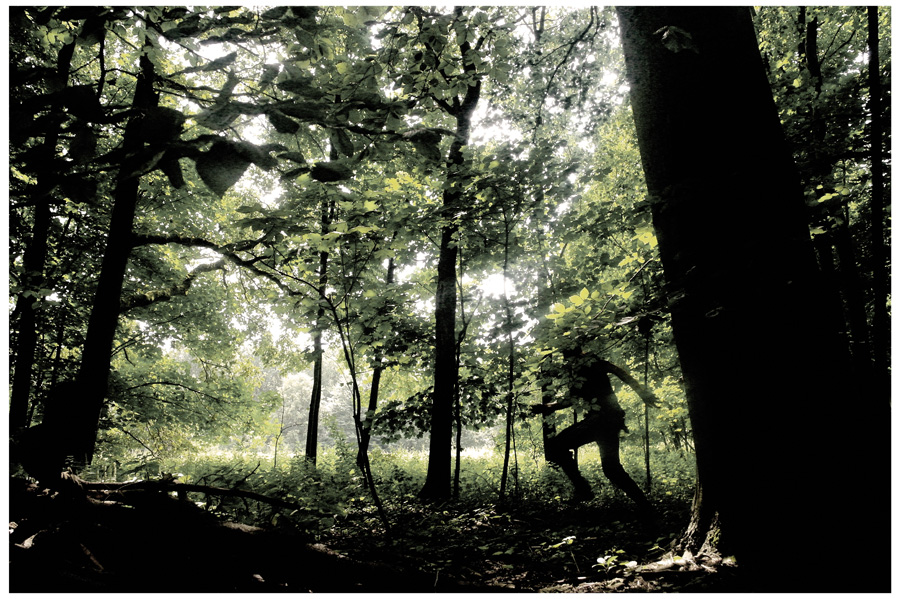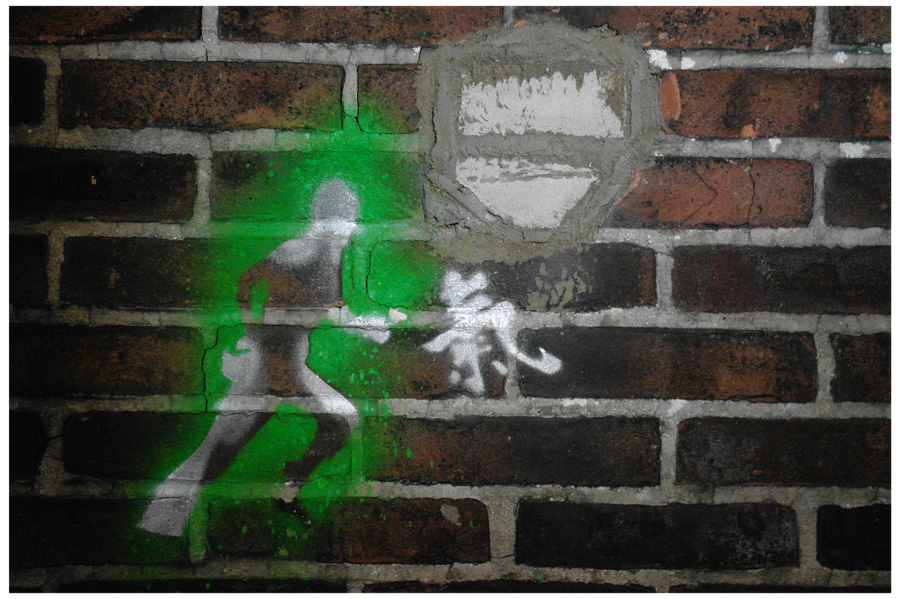SAR_sarsential™_toolbox_1/14
- Details
- Hits: 5780

Above: PGIA SAR 30K BLT. SAR [ Sarsential 1 ] : empty canvas [ route, terrain ].
"Barefeet keep me running. Shoes keep shoes running." Anonymous
"Peace is easily maintained;
Trouble is easily overcome before it starts.
The brittle is easily shattered;
The small is easily scattered.
Deal with it before it happens.
Set things in order before there is confusion."
Lao Tze
SAR_10_along_the_way
- Details
- Hits: 5735

Above: FP 30K SAR BL training. Identical to running… " [ a ] movie flows trough real time, like a river carrying you toward your destination. If you ask a question or think about something other than the movie, you're out of the river and up on the bank -- out of the flow. This is seldom good." -- Howard Suber ' The Power of Film ' (page 168).
Structure: How reality affects story:
"When I examined what the structure [ of the film 'Au Revoir les Enfants' ] should be, I thought it was important, little by little, to see the war breaking in. The central story is the arrival of this new boy and how he and Julien become friends; there's hostility at first and then step by step we see the birth of a friendship between two children who are equally curious about certain things, probably a little smarter than the rest of the students, and how they find their affinities." Louis Malle in 'Malle on Malle', edited by Philip French (Chapter 5, 'Coming Home', page 170 - 172)
Story: attempted quest for unity by the character(s):
" [...] "I don't want to bother you much with what happened to me personally," he began, showing in this remark the weakness of many tellers of tales who seem so often unaware of what their audience would best like to hear; "yet to understand the effect of it on me you ought to know how I got out there, what I saw, how I went up that river to the place where I first met the poor chap. It was the farthest point of navigation and the culminating point of my experience. It seemed somehow to throw a kind of light on everything about me -- and into my thoughts. It was sombre enough, too -- and pitiful -- not extraordinary in any way -- not very clear either. No, not very clear. And it seemed to throw a kind of light." Joseph Conrad 'Heart of Darkness', first published in 1899 (page 11)
As adapted in the 'Apocalypse Now' screenplay (John Milius and Francis Ford Coppola, narration written by Michael Herr):
EXT. MILITARY COMPOUND - DAY
A darkly painted Huey lands in a guarded military compound
somewhere in Nah Trang. The two enlisted men jump out of
the helicopter, leading Willard, who seems in much better
shape. As he gets out he sees a platoon of new men drilling
in the hot hazy sun. They are clean and pale.
MEN (Chanting)
I wanna go to Vietnam.
I wanna kill a Vietcong-
WILLARD (V.O.)
I was going to the worst place in
the world, and I didn't even know
it yet. Weeks away and hundreds
of miles up river that snaked
through the war like a circuit
cable...plugged straight into Kurtz.
He follows the escort across the fields as the platoon
drills.
WILLARD (V.O.)
It was no accident that I got to
be the caretaker of Colonel Walter
E. Kurtz's memory, any more that
being back in Saigon was an
accident. There was no way to
tell his story without telling my
own. And if his story is really a
confession, then so is mine.
They approach a civilian-type luxury trailer. It is
surrounded by concertina wire, and its windows have grenade
protection, but it still seems out of place in this austere
military base.
CLOSER ON WILLARD
He stands before the door for a moment, as the M.P.s
guarding the trailer check his papers.
SAR_sarsential™_toolbox_8/14
- Details
- Hits: 5703

Above: P [hoto finish] GIA¹ 30K SAR² BLMTT³. Sarsential 8: deep-breath.
" [D]eepening comfort is nature's signal that many families of messenger molecules (such as endorphins) are flowing trough [ the ] mind-body to facilitate healing and well-being." -- Ernest Lawrence Rossi on page 54 in 'The 20-Minute Break', first published in 1991 by Jeremy P. Tarcher, Inc., Los Angeles
¹ PGIA: Photo Generated Injury Analysis
² SAR: Strategic Alert Running
³ BLMTT: Best Level Mixed Terrain Training
SAR_sarsential™_18_der_ortssinn
- Details
- Hits: 5715

Above: PGIA SAR BLMTT 13K. Sarsential 18: der Ortssinn, "[S]ich von jeder Gegend schnell eine richtige geometrische Vorstellung zu machen und als Folge davon sich in ihr jedesmal leicht zurechtzufinden. Offenbar ist dies ein Akt der Phantasie. Zwar geschieht das Auffassen dabei teils durch das körperliche Auge, teils durch den Verstand, der mit seinen aus Wissenschaft und Erfahrung geschöpften Einsichten das Fehlende ergänzt und aus den Bruchstücken des körperlichen Blicks ein Ganzes macht; aber daß dies Ganze nun lebhaft vor die Seele trete, ein Bild, eine innerlich gezeichnete Karte werde, daß dies Bild bleibend sei, die einzelnen Züge nicht immer wieder auseinanderfallen, das vermag nur die Geisteskraft zu bewirken, die wir Phantasie nennen." [Visualisation: being able to find one’s place exactly at any time]
"[T]he [runner] must commit the business he has in hand to a corresponding space which his eye cannot survey, which the keenest zeal cannot always explore, and with which, owing to the constant changes taking place, he can also seldom become properly acquainted. [H]e who by talent and practice overcomes it will have a great advantage on his side […]. This very peculiar difficulty must be overcome by a natural mental gift of a special kind which is known by the – too restricted – term of Orisinn sense of locality. It is the power of quickly forming a correct geometrical idea of any portion of country, and consequently of being able to find one’s place in it exactly at any time. This is plainly an act of the imagination. The perception no doubt is formed partly by means of the physical eye, partly by the mind, which fills up what is wanting with ideas derived from knowledge and experience, and out of the fragments visible to the physical eye forms a whole; but that this whole should present itself vividly to the reason, should become a picture, a mentally drawn map, that this picture should be fixed, that the details should never again separate themselves – all that can only be effected by the mental faculty which we call imagination. If some great poet or painter should feel hurt that we require from his goddess such an office; if he shrugs his shoulders at the notion that a sharp gamekeeper must necessarily excel in imagination, we readily grant that we only speak here of imagination in a limited sense, of its service in a really menial capacity. But, however slight this service, still it must be the work of that natural gift, for if that gift is wanting, it would be difficult to imagine things plainly in all the completeness of the visible. […]"
Carl von Clausewitz, 'On War', page 71, first published in Germany by Ferdinand Dümmler, Berlin, 1832
SAR_9_along_the_way
- Details
- Hits: 5570

Above: FP SAR BL 30K training. How to train? Run from - to and unite start - finish! Start it, do it, repeat it.
"I am writing this from Budapest, the city in which I was born. I went to the United States so young that all my memories of Hungary were acquired later in life or through my family, whose memories bridged both world wars and the Cold War, all with their attendant horrors. My own deepest memory of Hungary comes from my parents' living room in the Bronx. My older sister was married in November 1956. There was an uprising against the Soviets at the same time, and many of our family members were still there. After the wedding, we returned home and saw the early newspapers and reports on television. My parents discovered that some of the heaviest fighting between the revolutionaries and Soviets had taken place on the street where my aunts lived. A joyous marriage, followed by another catastrophe -- the contrast between America and Hungary. That night, my father asked no one in particular, "Does it ever end?" The answer is no, not here. Which is why I am back in Budapest.
Hungary is a country of enormous cultivation and fury. It is surrounded by disappointments that can become dangers. Europe is not what it promised it would be. Russia is not what Europeans expected it to be. Within and without the country, the best [prime minister, leader of a right-of-center party and quite popular] Orban can do is balance, and those who balance survive but are frequently reviled. What Hungary could be in 2005 is not the Hungary it can be today. Any Hungarian leader who wished to avoid disaster would have to face this. Indeed, Europeans across the continent are facing the fact that the world they expected to live in is gone and what has replaced it, inside and outside of their countries, is different and dangerous."
George Friedman in 'Borderlands: Hungary Maneuvers', published today on the Strafor website.
Read more: http://www.stratfor.com/weekly/borderlands-hungary-maneuvers


